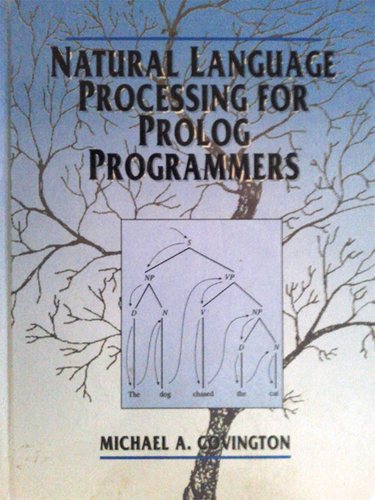
Natural Language Processing for Prolog Programmers
by Michael A. Covington
Publisher: Prentice-Hall 1994
ISBN/ASIN: 0136292135
ISBN-13: 9780136292135
Number of pages: 361
Description:
Designed to bridge the gap for those who know Prolog but have little or no background in linguistics, this book concentrates on turning theories into practical techniques. Coverage includes template and keyword systems, definite clause grammars (DCGs), English syntax, unification-based grammar, parsing algorithms, semantics, and morphology.
Download or read it online for free here:
Download link
(32MB, PDF)
Similar books
 Machine Translation: an Introductory Guide
Machine Translation: an Introductory Guideby Doug Arnold, at al. - Blackwell Pub
This introductory book looks at all aspects of Machine Translation: covering questions of what it is like to use a modern Machine Translation system, through questions about how it is done, to questions of evaluating systems, and more.
(9567 views)
 Formal Language Theory for Natural Language Processing
Formal Language Theory for Natural Language Processingby Shuly Wintner - ESSLLI
This text is a mild introduction to Formal Language Theory for students with little or no background in formal systems. The motivation is Natural Language Processing, and the presentation is geared towards NLP applications, with extensive examples.
(11067 views)
 Natural Language Processing with Python
Natural Language Processing with Pythonby Steven Bird, Ewan Klein, Edward Loper - O'Reilly Media
This book offers a highly accessible introduction to natural language processing, the field that supports a variety of language technologies. With it, you'll learn how to write Python programs that work with large collections of unstructured text.
(17190 views)
 A Maximum Entropy Approach to Natural Language Processing
A Maximum Entropy Approach to Natural Language Processingby A. L. Berger, S. A. Della Pietra, V. J. Della Pietra - Association for Computational Linguistics
The authors describe a method for statistical modeling based on maximum entropy. They present a maximum-likelihood approach for automatically constructing maximum entropy models and describe how to implement this approach efficiently.
(10449 views)